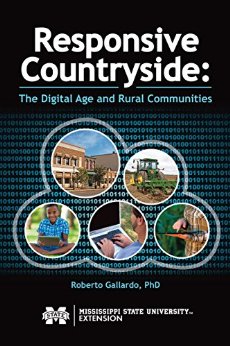Digitally Engaged Rural Community Development
DOI:
https://doi.org/10.5304/jafscd.2016.064.005
Keywords:
Digital Age, Rural Community Development, TechnologyAbstract
First paragraphs:
As a scholar working with the Regional and Rural Broadband research team in Canada (see http://www.r2b2project.ca), I was motivated to review Responsive Countryside: The Digital Age and Rural Communities, by Roberto Gallardo, to learn more about digitally engaged rural community development in the U.S. I begin this review with Gallardo's contextual discussion of the U.S. countryside. I then consider Gallardo's examples of digital revolutions in rural community development and finally reflect on this book's scholarly contributions.
In defining the term "rural" in Chapter 1, Gallardo clearly appreciates that, unlike in the past, businesses and livelihoods in the countryside are not only about agriculture. Rural is a geographic concept that connotes location and lifestyle. In the U.S., there have been profound changes in rural areas (those without an urban core of at least 10,000 residents) and small cities (those with an urban core of 10,000 to 49,999 residents). Gallardo produces an evidence base that, contrary to general perceptions, the population in the U.S. countryside is growing. This also applies to rural parts of other countries, such as Canada. However, population growth rates in the countryside are slower than in metro areas. The U.S. population is also aging, and rural communities and small cities are aging faster than metro areas. Further, the U.S. population is becoming more diverse, with a decrease in white non-Hispanics and an increase in Hispanics, even in rural areas. Gallardo argues that these changes are due to new technologies, not the least of which are digital revolutions.....
Metrics

Downloads
Published
How to Cite
License
Copyright (c) 2016 Laxmi Prasad Pant

This work is licensed under a Creative Commons Attribution 4.0 International License.
The copyright to all content published in JAFSCD belongs to the author(s). It is licensed as CC BY 4.0. This license determines how you may reprint, copy, distribute, or otherwise share JAFSCD content.











